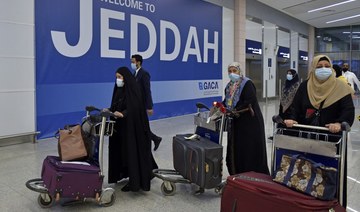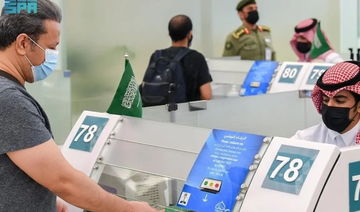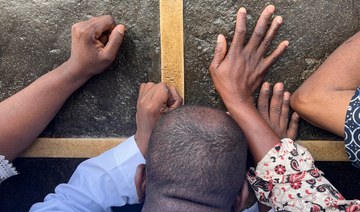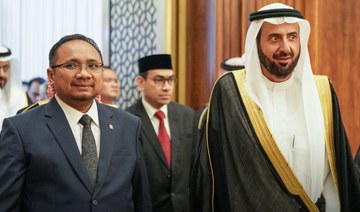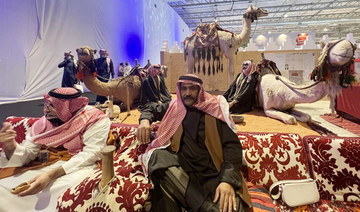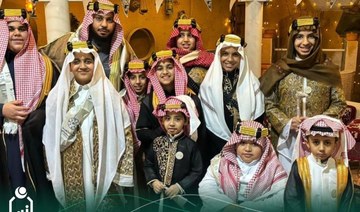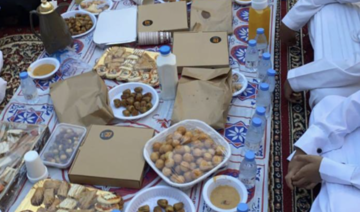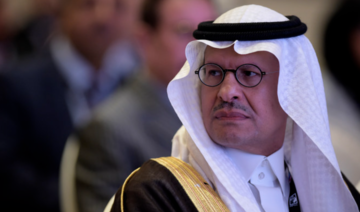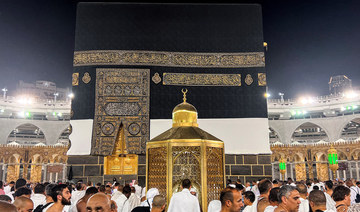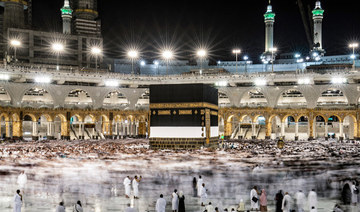RIYADH: Expatriate workers in Saudi Arabia on Thursday welcomed official calls for the fees businesses pay to hire foreigners to be revised so that they are proportionate to employees’ wages.
However they said that the fees expatriates themselves have to pay for dependents who live with them in the Kingdom should also be reviewed so that they, too, are wage proportionate.
The proposal for proportionate fees came this week from Hazza Al-Qahtani, a member of the Shoura Council. He said that the charges have become an obstacle to growth for small and medium enterprises in the Kingdom and need to be reviewed to help reduce their operating costs and ensure growth and sustainability.
In January 2018, Saudi Arabia introduced a fixed monthly fee, payable when a work permit (iqama) is extended, of SR400 ($107) for each foreign worker a business hires. It was reduced to SR300 for those that employ at least as many Saudis as expatriates. It increased to SR600 or SR500 in 2019 and to SR800 or SR700 last year.
Sultana Al-Badawi, also a member of the Shoura Council, said SMEs are facing challenges because of the financial burdens imposed on them and the administrative requirements dictated by a number of official bodies. She called for a review of procedures and an assessment the impact they have on the establishments.
Expatriates in the Kingdom said that they hope the fixed fees that they have to pay for their dependents living in the Kingdom will also be reviewed and made proportional to their wages.
Faiz Al-Najdi, a Pakistani expatriate working in Yanbu told Arab News: “What I understand is that it is a proposal to provide relief to the SMEs, which as of this year have to pay SR800 for each foreign worker before renewal of the iqama.”
But, he added, this will not provide any financial relief for the expatriate workers themselves, who have to pay SR400 a month for each family member living with them in the Kingdom. “It would be indeed a great relief to them if this levy is reduced or made proportional to income,” said Al-Najdi.
Raafat Aoun, a Lebanese national living in Jeddah, told Arab News that he has been waiting for almost two years for an announcement that the dependent fees will be abolished or reduced.
“It is good that a Shoura Council member is proposing to make expatriate fees proportional to income, but it should be both for companies and the expatriates who are paying for family dependents,” he said.
He said that both fees are huge financial burdens and added: “It is affecting the business of the SMEs. It is also not viable for expatriates to keep their families in the Kingdom. Decisions to reduce it or make it proportional to income will surely energize business activities and so add to the gross domestic product of the Kingdom, though I would prefer the expatriates fee to be abolished.”
Mohammad Arshad Ali Khan, a teacher at International Indian Public School in Riyadh, also welcomed the proposal.
“Saudi Arabia is a second home for all expatriates and we are looking for a favorable humanitarian decision from the Kingdom of humanity, which is undergoing changes as part of Crown Prince Mohammad bin Salman’s ambitious economic and social reforms,” he told Arab News.
Expats in Saudi Arabia welcome call for business fees for hiring them to be proportionate to wages
https://arab.news/9sp5b
Expats in Saudi Arabia welcome call for business fees for hiring them to be proportionate to wages
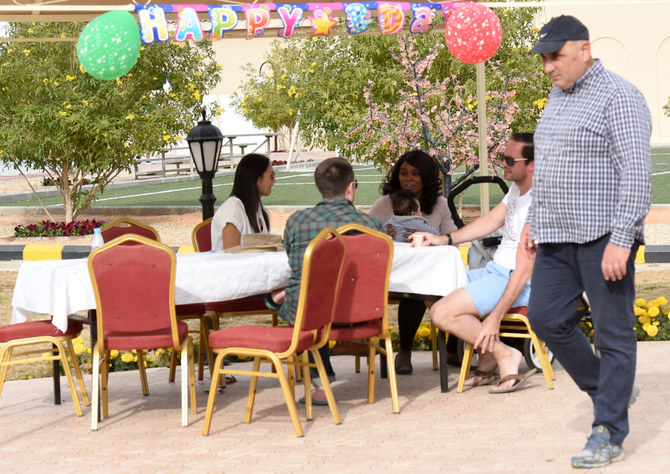
- However they say the proposal by a Shoura Council member should also include the monthly fees they pay for dependents
Saudi Arabia says anyone violating Hajj regulations between June 2-20 will be punished
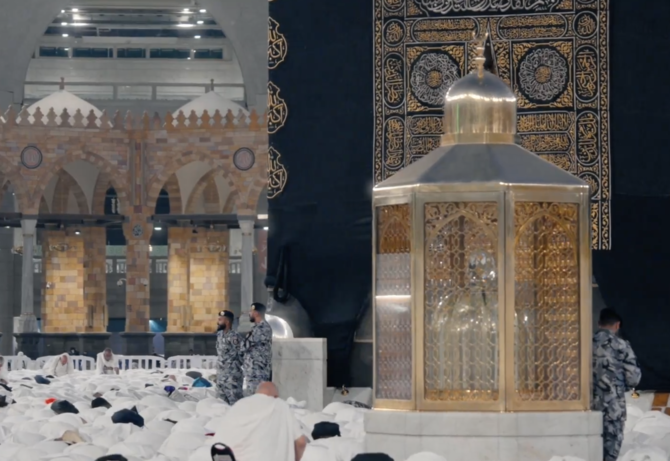
- Citizens, residents, and visitors to the Kingdom caught violating Hajj regulations and instructions without a permit in specified areas will be fined SR 10,000
RIYADH: Saudi Arabia’s Interior Ministry announced on Tuesday that violators of Hajj regulations and instructions without a permit during the period June 2- 20 will be punished.
Citizens, residents, and visitors to the Kingdom caught violating Hajj regulations and instructions without a permit in Makkah, the area around the Grand Mosque, Hajj sites, the Haramain station in Al-Rusayfah, security control centers, sorting centers, and temporary security control centers during the specified period will be fined SR 10,000 ($2,666).
Residents violating the rules will be deported to their countries and banned from reentering the Kingdom, Saudi Press Agency reported.
The Ministry of Interior said violators will be fined a further SR 10,000 each time they broke the rules, stressing the importance of adhering to Hajj regulations and instructions so that pilgrims can carry out their rituals in safety, security, and comfort.
Anyone who is caught transporting violators of Hajj regulations and instructions without a permit will be imprisoned for a period of up to six months and fined up to SR 50,000 riyals.
An order will be made to confiscate the vehicle used and the violator will be deported after serving a prison sentence if an expat. The fine will increase in line with the number of people illegally transported.
Experts discuss revitalization of industrial heritage sites at Diriyah workshop

- Workshop will cover topics such as industrial heritage on a global scale, industrial heritage within the Kingdom, and case studies of the revitalization and restoration of industrial heritage sites
- Workshop features Tosh Warwick from the UK, Mitsuko Nishikawa from Japan, and Mirhan Damin, who will discuss her expertise in industrial heritage in Egypt
RIYADH: The Heritage Commission kicked off day one of the International Workshop on Industrial Heritage in the JAX district to promote awareness of industrial heritage, its preservation, and diversification.
The workshop, which runs from May 7 to May 8 in Diriyah, will cover topics such as industrial heritage on a global scale, industrial heritage within the Kingdom, and case studies of the revitalization and restoration of industrial heritage sites.
The workshop features global experts who will lecture and share their case studies, including Tosh Warwick from the UK, Mitsuko Nishikawa from Japan, and Mirhan Damin, who will discuss her expertise in industrial heritage in Egypt.
The opening remarks for the workshop were delivered by Jasser Al-Harbash, CEO of the Heritage Commission, who highlighted some of the Kingdom’s notable industrial heritage sites, particularly in the mining sector.
Following the opening remarks, several participants and speakers at the workshop were honored with plaques for their contributions to the field, including Sheikh Ibrahim Al-Khalifa from the Arab Regional Center for World Heritage in Bahrain, Amal Al-Harbi from the JAX district, and Dr. Massimo Preite from the International Committee for the Conservation of the Industrial Heritage, among others.
The first session of the workshop provided a broader overview of international industrial heritage, with panel members sharing insights from Germany, Latin America, and the UK.
Marion Steiner, secretary-general of the TICCIH, gave a lecture on the interpretation and global perspective of industrial heritage.
She stressed that a global understanding of industrial heritage leads to a better understanding of each other and sparks peace-building in the minds of men and women.
Steiner told Arab News that gatherings like the workshop hosted by the Saudi Heritage Commission serve “as an element in a process which could lead to a better understanding of what connects us across places and people through history and time.”
Miles Oglethorpe, president of the TICCIH, discussed the broad definition of industrial heritage and the extensive list of sectors that fall within this category, such as agriculture, mining, oil and gas, heavy industries, and water desalination.
He explained that industrial heritage comprises sites, structures, and complexes, as well as their associated documentation and history.
“It includes both material assets and immovable and movable and intangible dimensions such as know-how, the organization of work and workers, and the complex social and cultural legacy that has shaped the life of communities and brought major organizational changes to entire societies and the world in general,” said Oglethorpe.
As part of the workshop, the commission set up multiple VR stations that allow users to explore the Kingdom's industrial heritage sites, including oil and gas projects. These stations provided information on engineering feats such as the Tapline, dating back to the oil boom in the 1950s.
By hosting this international workshop, the Kingdom aims to take a proactive approach to documenting its industrial heritage. The workshop invited participants to share international expertise, exchange insights, and engage in debates on strategies for industrial heritage preservation.
Ensan launches dual initiatives to empower orphaned girls, single mothers

- First of the schemes, titled Enayah (care), would benefit 30 primary school age children
- Second initiative, titled Qanadil (lanterns), is designed to provide single mothers with a range of emotional and practical support
RIYADH: The Charity Society for Orphans Care in Riyadh has launched two initiatives to improve the lives of orphaned girls and single mothers.
Mohammed bin Saad Al-Muharib, general manager of the society, also known as Ensan, said the first of the schemes, titled Enayah (care), would benefit 30 primary school age children, the Saudi Press Agency reported.
The program will run for a full academic year and include a range of activities with psychological, spiritual, linguistic, social, health and economic dimensions.
Al-Muharib said the program would feature regular meetings, visits and excursions with the ultimate goal of providing the youngsters with the tools they needed to navigate a successful future.
The second initiative, titled Qanadil (lanterns), is designed to provide single mothers with a range of emotional and practical support to help them achieve personal and professional success.
The scheme will comprise 90 hours of practical training designed to raise awareness of their educational responsibilities, addressing the spiritual and psychological needs of their children and teaching them critical life skills.
Both programs will be overseen by the Specialized Council for Orphan Associations in the Kingdom and supported by the Abdul Latif Al-Essa Charitable Foundation. The King Salman Social Center will provide logistical support in the form of venues for holding the training courses.
Saudi, Russian foreign ministers discuss ties in phone call
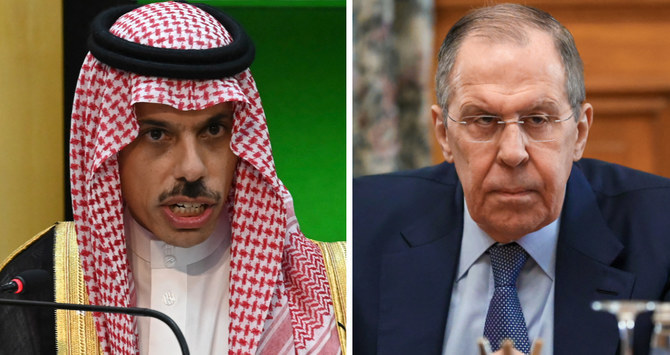
RIYADH: Saudi Foreign Minister Faisal bin Farhan on Tuesday received a phone call from his Russian counterpart Sergei Lavrov.
The Saudi Press Agency said both ministers discussed bilateral ties and issues of common interest.
Ministry launches service to hire seasonal Hajj workers

- The initiative allows businesses to engage a temporary workforce through seasonal contracts during the Hajj period
RIYADH: The Ministry of Human Resources and Social Development has launched the Ajeer Al-Hajj service for this year’s Hajj season.
The initiative allows businesses to engage a temporary workforce through seasonal contracts during the Hajj period.
The ministry is encouraging Saudis and expatriate residents interested in working at the holy sites during the Hajj season to upload their CVs on the Ajeer portal, the Saudi Press Agency reported on Tuesday.
This integrated platform connects job seekers with available positions, facilitating workforce management and streamlining processes for both businesses and workers during the Hajj season.
The launch of Ajeer Al-Hajj aligns with the ministry’s broader strategy to enhance services for pilgrims and improve their experience during this sacred period.
Establishments are now required to issue Hajj permits for individuals employed on a seasonal basis, with strict penalties for non-compliance, the SPA reported.
This service enables businesses to issue work permits and recruit temporary staff, as well as advertise job vacancies specifically designed for the Hajj season. Job seekers can access these opportunities and apply directly through the platform.
The key goals of Ajeer Al-Hajj are to foster workforce flexibility, boost market efficiency, and reduce reliance on external recruitment sources, according to the SPA.
The service is accessible online in a streamlined manner for businesses and individuals through the following website: https://www.ajeer.com.sa.



